
NATIONAL RAILWAY BUSINESS CAR SERVICES
DIRECTOR: Louis Charles Hoffman Alloin
|
| |||||||
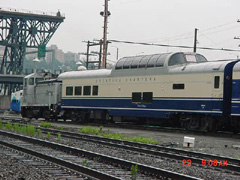
|
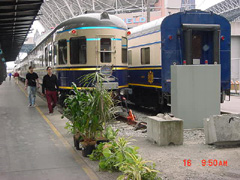
|
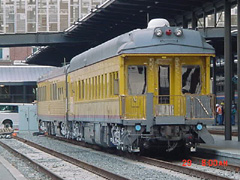
|
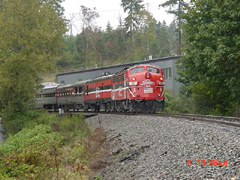
|


Kentucky Cardinal As I am sure that you are aware, The Kentucky Cardinal no longer goes to Louisville. The last date of operation was train #851 that departed on July 6th. With the elimination of Amtrak service between Indianapolis and Louisville, there is no longer a requirement to perform any switching to Trains #50/51 at IND. Amtrak plans to operate private cars on the rear of these trains through IND on any day of the week. For any train that will require an extra switch move outside of the normal operation or that would exceed the space available between signals (currently 1100 feet), Amtrak will seek CSX approval ahead of time before approving the move. AAPRCO FRA Waiver Request The following is an article that was posted recently regarding AAPRCO’s petition to the FRA requesting relief from the current direct release braking requirements. Petition for Waiver of Compliance Federal Register 38742 Vol. 68 - No. 125 (c) 2003 Federal Information & News Dispatch, Inc. All rights reserved In accordance with part 211 of Title 49 Code of Federal Regulations (CFR), notice is hereby given that the Federal Railroad Administration (FRA) received a request for a waiver of compliance with certain requirements of its safety standards. The individual petition is described below, including the party seeking relief, the regulatory provisions involved, the nature of the relief being requested, and the petitioner's arguments in favor of relief. American Association of Private Railroad Car Owners, Inc. (Docket Number FRA- 2003-15340) The American Association of Private Railroad Car Owners, Inc. (AAPRCO) seeks a waiver of compliance from certain provisions of 49 CFR part 238, Passenger Equipment Safety Standards. Specifically, [Section] 238.231(m)(2), which specifies that "up to two cars may be operated in direct release mode when the rest of the cars in the train are operated in graduated release mode, provided that the cars operated in direct release mode are hauled at the rear of the train consist." AAPRCO requests that a waiver be granted to modify the requirements of [Section] 238.231(m)(2), to read as follows: "up to two cars may be operated in direct release mode when the rest of the cars in the train are operated in graduated release mode." Thereby, eliminating the placement restrictions of the direct release cars to the rear of the train. Approximately 50 private cars are equipped with an ABD type brake that can only operate in direct release mode. AAPRCO states that these types of cars have operated in Amtrak service for at least ten years without incident. Until recently, these cars have been placed anywhere in the Amtrak trains, although Amtrak has not allowed placement of two such cars adjacent to one another. They are usually separated by at least one car operating in graduated release brake mode. The requirement of the placement of all such cars at the rear of the train has resulted in Amtrak's refusal to handle such cars on all graduated release mode trains where extra switching is required. This has reduced revenue to Amtrak and the inability of private cars to operate to certain locations. AAPRCO knows of no technical reason why the direct release mode car has to be placed at the rear of a graduated release mode train. The Talgo train, which supports the only gateway between Seattle, Washington and Vancouver, B.C., has to have the private car next to the locomotive. Otherwise, AAPRCO contends that Amtrak does not support the need to place such cars in any particular location in the train. AAPRCO states that if this waiver is granted, it would allow flexibility in the make-up of the train, thereby making more trains and locations available for use by the Private Cars.Interested parties are invited to participate in these proceedings by submitting written views, data, or comments. FRA does not anticipate scheduling a public hearing in connection with these proceedings since the facts do not appear to warrant a hearing. If any interested party desires an opportunity for oral comment, they should notify FRA, in writing, before the end of the comment period and specify the basis for their request. All communications concerning these proceedings should identify the appropriate docket number (e.g., Waiver Petition Docket Number FRA-2003-15340) and must be submitted to the Docket Clerk, DOT Docket Management Facility, Room PL-401 (Plaza Level), 400 7th Street, SW., Washington, DC 20590. Communications received within 45 days of the date of this notice will be considered by FRA before final action is taken. Comments received after that date will be considered as far as practicable. All written communications concerning these proceedings are available for examination during regular business hours (9 a.m.-5 p.m.) at the above facility. All documents in the [Page Number 38743] public docket are also available for inspection and copying on the Internet at the docket facility's Web site at http://dms.dot.gov. Anyone is able to search the electronic form of all comments received into any of our dockets by the name of the individual submitting the comment (or signing the comment, if submitted on behalf of an association, business, labor union, etc.) You may review DOT's complete Privacy Act Statement in the Federal Register published on April 11, 2000 (Volume 65, Number 70; Pages 19477-78). The Statement may also be found at http://dms.dot.gov. Issued in Washington, DC, on June 19, 2003. Grady C. Cothen, Jr., Deputy Associate Administrator for Safety Standards and Program Development. [FR Doc. 03-16367 Filed 6-27-03; 8:45 am] Private Car Insurance
Please remember that it is your responsibility to procure and maintain insurance as detailed in the “Conditions For Movement of Privately Owned Railroad Cars on Amtrak”. Please be sure that your policy is up to date. FY ’02 Private Car Audit We are currently auditing our books for last fiscal year to insure that all private car revenue has been received. Due to the turnover in our entire department last year and the relocation of the operation to Wilmington, we are reviewing all of our records. Therefore, you may be receiving an invoice or a call from Becky Johnson if you made a move and have not yet paid. This notice is to advise you of this on-going audit and asking for your assistance. If you have made a move but have yet to pay, please contact Becky as soon as possible. She can be contacted at (312) 880-5273. If an owner has an outstanding balance on a private car movement invoice that exceeds 30 days, all future moves will be suspended until full settlement has been made. This includes all moves, not just those that are currently being audited. Service Outages - Updates It is that time of year when the railroads take an opportunity to upgrade their infrastructure. This is great news for the long haul but unfortunately; it impacts regular Amtrak service and private car operations in the heart of summer. Several of these current service outages that may impact operations are listed on the following page. Trains 364/365 (The International)-CN/IC Track Work East of Lapeer, MI A track project between Lapeer and Port Huron is currently underway with a scheduled completion date of Friday August 15, 2003. Track gangs are scheduled to work Monday through Friday between 9:30 AM-EDT and 4:30 PM-EDT. Train 364 will operate Chicago to Lansing Monday through Friday, passengers will detrain at Lansing and board a bus that will makes stops at Durand, Flint, Lapeer and Port Huron. After customs processing at Port Huron passengers scheduled for stops between Port Huron and Toronto will be bussed to Sarnia to board equipment representing train 364 Sarnia to Toronto. Train 365 will operate Toronto to Sarnia Monday through Friday. Passengers will detrain at Sarnia, be bussed to Port Huron for customs processing then bussed to Lansing making stops at Lapeer, Flint, Durand and Lansing. At Lansing, passengers scheduled for stops between Lansing and Chicago will board equipment representing train 365 Lansing to Chicago. Trains 364/365/367 will operate normal on Saturday, Sunday and Holidays. Portland, OR – Station Track Work Station track work is underway at Portland, OR, which is expected to be completed by mid-August. Private car moves into Portland are being discouraged until the completion of this work. |
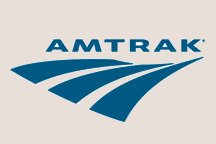
![[Email Us]](http://www.atdlines.com/images/mailbutn.gif)
![[Return to Top]](http://www.atdlines.com/images/up.gif)
![Crossing Gate]](http://www.atdlines.com/motion/train6.gif)
![Power By ETS]](http://www.atdlines.com/images/power.gif)
